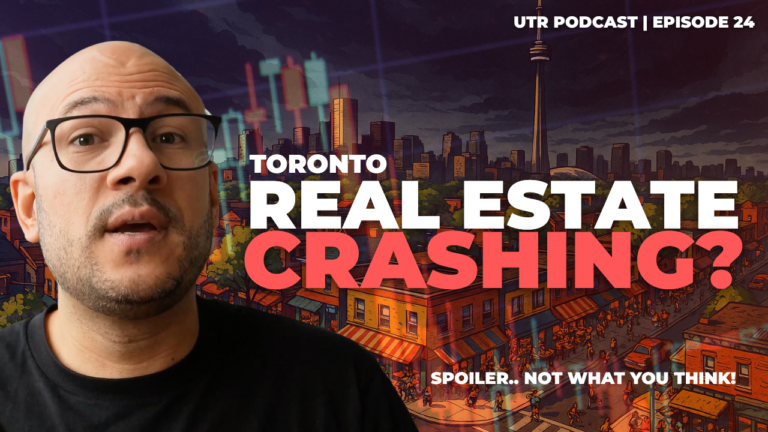Condo maintenance fees are a hot topic in the Toronto real estate market. From Reddit forums to YouTube comments, many people question whether these fees are worth it or just another way to drain your wallet.
Are condo fees really as bad as people claim, or is there more to the story? In this post, we’ll break down:
- How maintenance fees work
- What they actually cover
- How they compare to the hidden costs of owning a house
- Real-life examples of Toronto condos and houses
By the end, you’ll have a clear understanding of whether condos or houses offer better value in the long run.
What Are Condo Maintenance Fees?
Condo maintenance fees, often referred to as “condo fees,” cover the costs of maintaining a building and its shared spaces. These fees ensure the building stays in good shape, both functionally and aesthetically.
What Do Maintenance Fees Typically Cover?
- Common Areas: Hallways, lobbies, parking garages, and shared amenities like pools and gyms.
- Utilities: Some condos include hydro, heating, water, or even internet and cable.
- Building Insurance: Covers the structure itself; condo owners need separate insurance for their unit contents.
- Reserve Fund Contributions: A rainy-day fund for big repairs like roofs, elevators, and HVAC systems.
Are High Maintenance Fees Always a Bad Thing?
Not necessarily. Older buildings with fees over $1,000 a month often include more—such as utilities, cable, and parking—while offering larger units and amenities like concierge services. These fees also reflect the shared costs of maintaining big-ticket items that house owners manage on their own.
The Hidden Costs of Owning a House
If you think owning a house eliminates monthly maintenance fees, think again. Houses come with their own set of costs, and they can be just as unpredictable as they are expensive.
Annual Maintenance Costs
According to the CMHC, homeowners should budget about 1% to 3% of their home’s value annually for maintenance. For a $1,000,000 home, that’s $10,000 to $30,000 a year.
Common Repairs for Houses:
- Roof Replacement: $15,000–$20,000
- HVAC System Replacement: $10,000+
- Foundation Repairs: $30,000–$50,000+
Newer homes might avoid these expenses for the first few years, but landscaping, driveway upkeep, and small repairs can still cost $3,000–$5,000 annually.
Toronto Condos vs. Houses: A Cost Comparison
To give you a real sense of what condo maintenance fees look like versus house maintenance costs, let’s compare five different condos and houses in Toronto:
1. Hickory Tree – Older High-Rise Condo
- Maintenance Fees: $1,027/month
- What’s Included: Hydro, heating, water, cable, central air, parking, and building insurance.
2. Connolly – Boutique Infill Condo
- Maintenance Fees: $464/month
- What’s Included: Basic shared maintenance with no major amenities.
3. Brickworks – Freehold Townhouse with Condo Element
- Maintenance Fees: $353/month
- What’s Included: Landscaping and exterior upkeep for shared spaces.
4. 1603 Eglinton Avenue West – Newer High-Rise Condo
- Maintenance Fees: $941/month
- What’s Included: Rooftop terrace, gym, concierge, and pet-friendly amenities.
5. Briar Hill – Condo Townhouse Hybrid
- Maintenance Fees: $580/month
- What’s Included: Shared spaces and parking; interior repairs remain the owner’s responsibility.
Houses for Comparison:
- 62 Earlsdale Avenue (New Build): $3,000–$5,000 annually for landscaping and upkeep.
- 533 McRoberts Avenue (Older Bungalow): $7,000–$12,000 annually for aging systems and repairs.
- 94 Fairbank Avenue (Mid-Range 2-Storey): $7,000–$10,000 annually, with higher costs for upgrades or renovations.
Addressing Condo Concerns: Special Assessments and Due Diligence
One of the biggest fears buyers have about condos is unexpected costs, like special assessments for major repairs. Here’s how to protect yourself:
- Status Certificate: A “report card” of the condo’s finances, reserve fund, and any upcoming repairs.
- Hire a Lawyer: A real estate lawyer will review the status certificate and flag potential red flags.
- Do Your Research: Google, Reddit, and even ChatGPT can reveal resident reviews, ongoing issues, or poorly managed boards.
The Final Verdict: Condo or House?
When comparing the costs, older condos and older houses are surprisingly similar. The key difference?
- Condos offer convenience and predictability. Your monthly fees cover shared maintenance, and you’re not alone when big repairs hit.
- Houses give you control and flexibility, but with it comes the stress of unpredictable, high-ticket expenses.
Ultimately, the choice comes down to your lifestyle and financial priorities. Do you value peace of mind, or are you willing to roll the dice for lower monthly costs?
Conclusion
So, are condo maintenance fees in Toronto really worth it? It depends on what you’re looking for. Both condos and houses have their pros and cons, but understanding the true costs can help you make the best decision.
Still stuck? I’ve helped countless clients navigate the condo vs. house debate in Toronto, and I can help you too.
📧 Reach out to me at [email protected] or visit my YouTube channel for more in-depth breakdowns like this one.
Looking to learn more about Toronto condos or need real estate advice? Fill out the form below, and I’ll personally get back to you with the insights you need!


